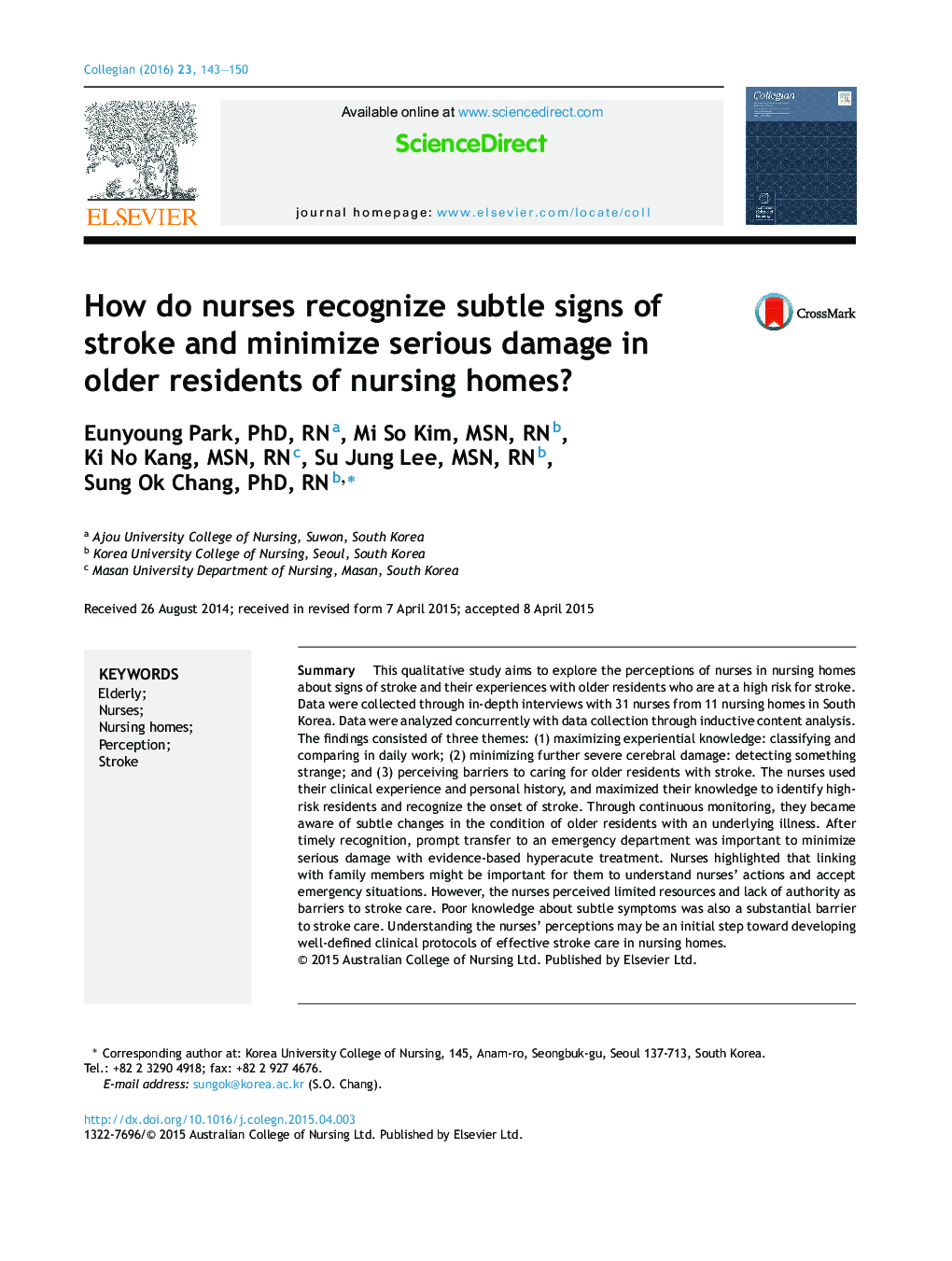| Article ID | Journal | Published Year | Pages | File Type |
|---|---|---|---|---|
| 2646068 | Collegian | 2016 | 8 Pages |
SummaryThis qualitative study aims to explore the perceptions of nurses in nursing homes about signs of stroke and their experiences with older residents who are at a high risk for stroke. Data were collected through in-depth interviews with 31 nurses from 11 nursing homes in South Korea. Data were analyzed concurrently with data collection through inductive content analysis. The findings consisted of three themes: (1) maximizing experiential knowledge: classifying and comparing in daily work; (2) minimizing further severe cerebral damage: detecting something strange; and (3) perceiving barriers to caring for older residents with stroke. The nurses used their clinical experience and personal history, and maximized their knowledge to identify high-risk residents and recognize the onset of stroke. Through continuous monitoring, they became aware of subtle changes in the condition of older residents with an underlying illness. After timely recognition, prompt transfer to an emergency department was important to minimize serious damage with evidence-based hyperacute treatment. Nurses highlighted that linking with family members might be important for them to understand nurses’ actions and accept emergency situations. However, the nurses perceived limited resources and lack of authority as barriers to stroke care. Poor knowledge about subtle symptoms was also a substantial barrier to stroke care. Understanding the nurses’ perceptions may be an initial step toward developing well-defined clinical protocols of effective stroke care in nursing homes.
